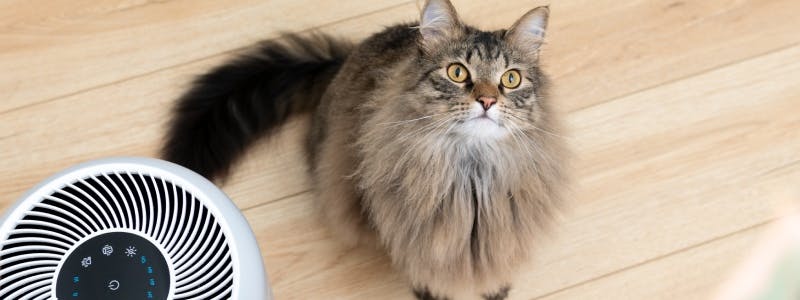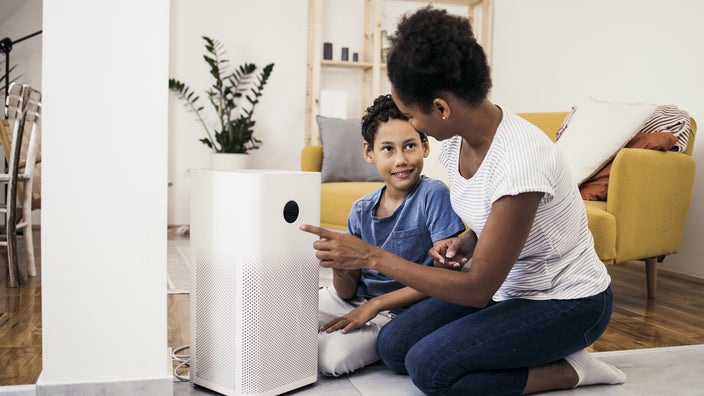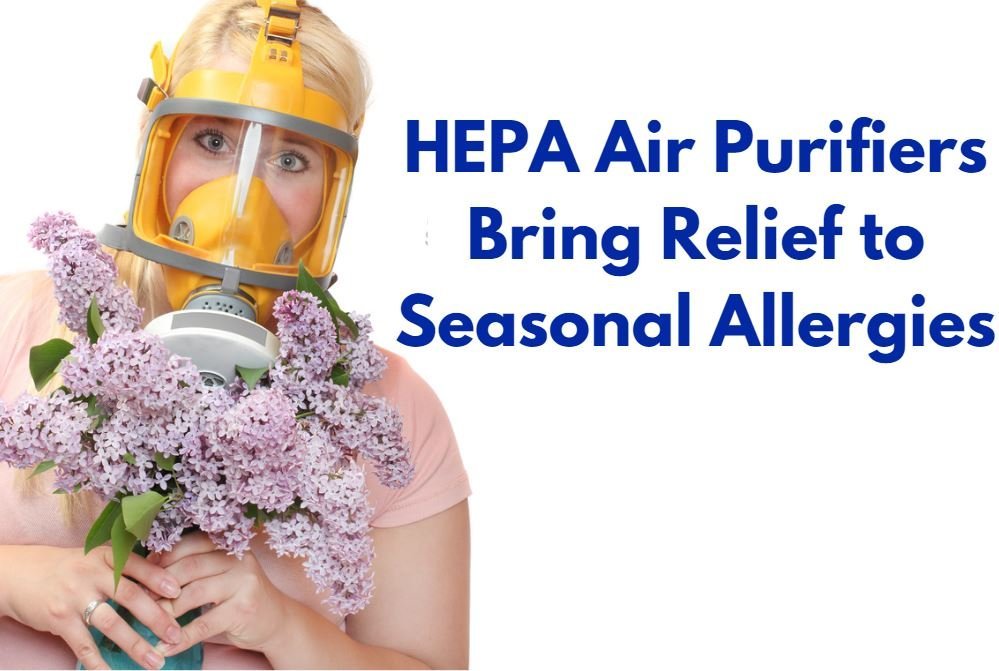Seasonal allergies can make you feel miserable. Sneezing, itchy eyes, and a runny nose are common symptoms. But do air purifiers help with seasonal allergies? Let’s find out!
What Are Seasonal Allergies?
Seasonal allergies happen at certain times of the year. They are caused by pollen from trees, grass, and weeds. When you breathe in pollen, your body reacts. It thinks pollen is harmful and releases chemicals to fight it. This causes allergy symptoms.
How Do Air Purifiers Work?
Air purifiers clean the air in your home. They remove particles like pollen, dust, and pet dander. Air purifiers have filters that trap these particles. The clean air is then blown back into the room.
Types Of Filters
There are different types of filters in air purifiers:
- HEPA Filters: These are the most effective. They can remove 99.97% of particles that are 0.3 microns or larger.
- Activated Carbon Filters: These remove odors and gases. They are good for removing smoke and chemical smells.
- UV Filters: These use ultraviolet light to kill bacteria and viruses. They are good for keeping germs out of the air.
Benefits of Air Purifiers for Seasonal Allergies
Air purifiers can help reduce allergy symptoms. Here are some benefits:
1. Remove Pollen
Air purifiers with HEPA filters can trap pollen. This reduces the amount of pollen in the air. Less pollen means fewer allergy symptoms.
2. Reduce Dust And Pet Dander
Dust and pet dander can make allergies worse. Air purifiers can remove these particles. This helps keep the air clean and reduces allergy symptoms.
3. Improve Indoor Air Quality
Clean air is important for your health. Air purifiers improve indoor air quality. This can help you breathe easier and feel better.
4. Reduce Odors
Air purifiers with activated carbon filters can remove odors. This includes pet smells, cooking odors, and smoke. Clean air smells better and feels fresher.
Choosing the Right Air Purifier
Not all air purifiers are the same. Here are some tips for choosing the right one:
1. Look For A Hepa Filter
HEPA filters are the best for removing pollen. Make sure the air purifier has a true HEPA filter.
2. Check The Room Size
Air purifiers are designed for different room sizes. Check the label to see if it is right for your room. A small air purifier won’t work well in a large room.
3. Consider Noise Level
Some air purifiers can be noisy. If you plan to use it in a bedroom, look for a quiet model. Many air purifiers have different speed settings. You can use a lower setting at night.
4. Look For Additional Features
Some air purifiers have extra features. This can include air quality sensors, timers, and remote controls. These features can make the air purifier more convenient to use.

Credit: www.flonase.com

Credit: www.goodrx.com
How to Use an Air Purifier for Best Results
Using an air purifier correctly is important. Here are some tips for best results:
1. Place It In The Right Spot
Place the air purifier in the room where you spend the most time. This is often the bedroom or living room. Make sure it is not blocked by furniture.
2. Keep Doors And Windows Closed
Keep doors and windows closed when the air purifier is on. This helps keep the air clean. Opening windows can let pollen and dust back in.
3. Run It Continuously
For best results, run the air purifier continuously. This keeps the air clean all the time. Some air purifiers have an auto mode. This adjusts the speed based on air quality.
4. Change Filters Regularly
Filters need to be changed regularly. Check the manufacturer’s instructions. Some filters need to be changed every 3-6 months. Others can last up to a year.
Frequently Asked Questions
Do Air Purifiers Reduce Pollen In Homes?
Yes, air purifiers can capture pollen particles, reducing their presence indoors and helping alleviate allergy symptoms.
Can Air Purifiers Help With Spring Allergies?
Air purifiers filter out allergens like pollen and dust, making them effective for managing spring allergies.
Which Air Purifier Is Best For Allergies?
HEPA air purifiers are highly recommended for allergies as they effectively trap airborne particles, including pollen and dust.
Do Air Purifiers Improve Indoor Air Quality?
Air purifiers remove allergens, pollutants, and other particles, significantly improving indoor air quality for allergy sufferers.
How Do Air Purifiers Work For Allergies?
Air purifiers use filters to capture allergens such as pollen, dust, and pet dander, reducing allergy symptoms indoors.
Conclusion
So, do air purifiers help with seasonal allergies? Yes, they can! Air purifiers remove pollen, dust, and pet dander. This can reduce allergy symptoms and improve indoor air quality. Choose the right air purifier and use it correctly for best results. Breathe easier and feel better with an air purifier in your home!
Rakib Sarwar is a Registered Pharmacist and a reputed health and wellness blogger. He has a great interest in Air purifiers.
